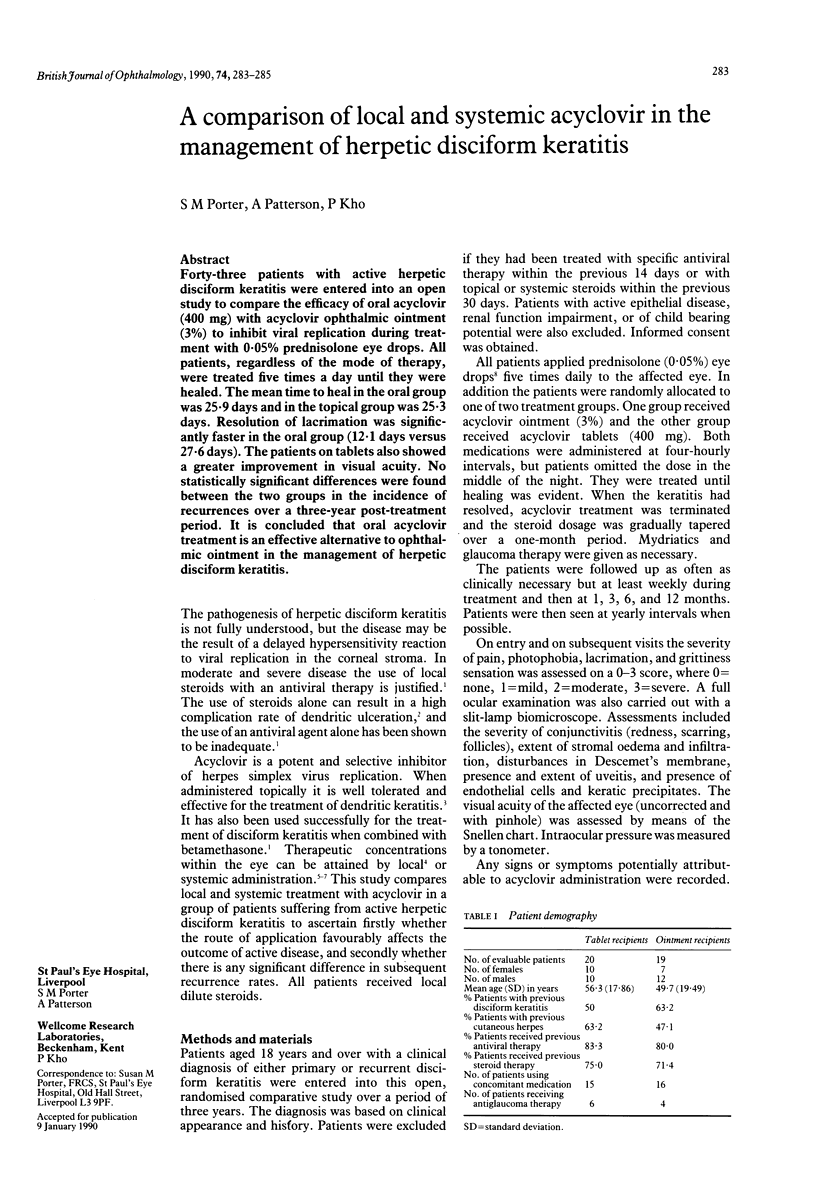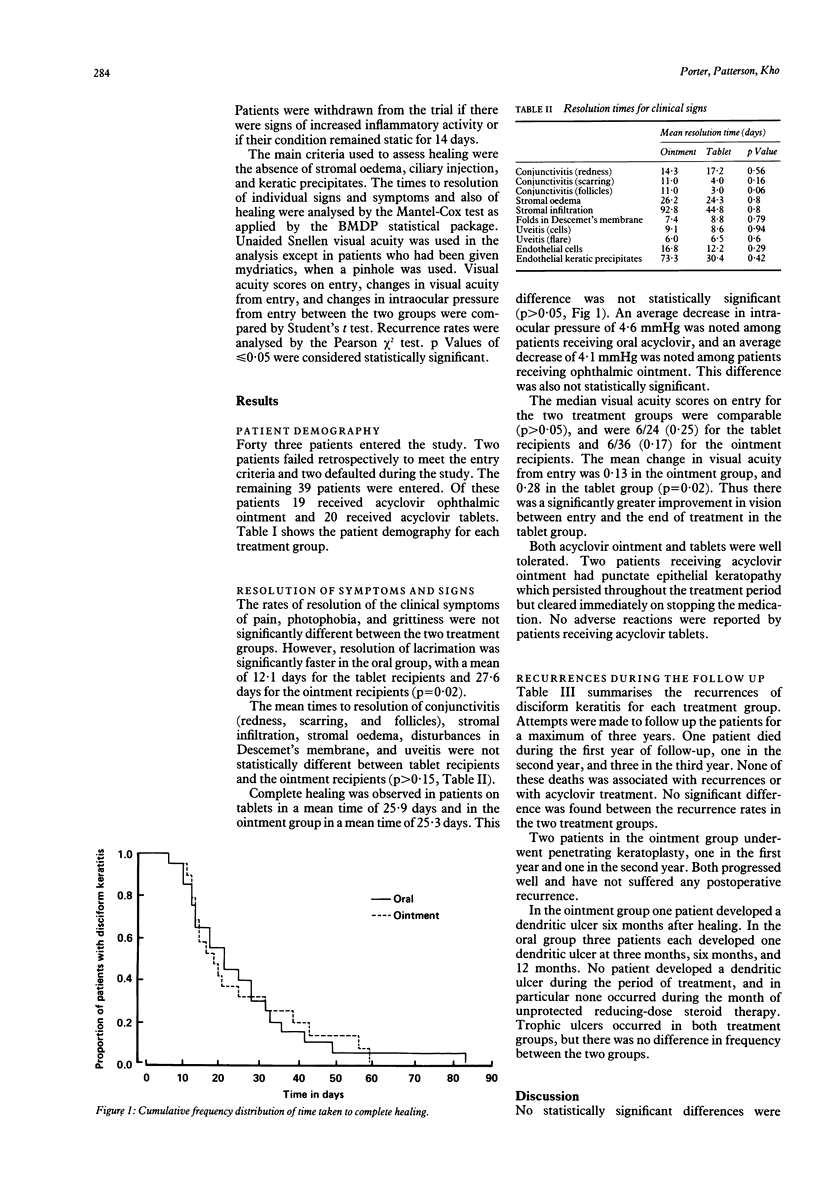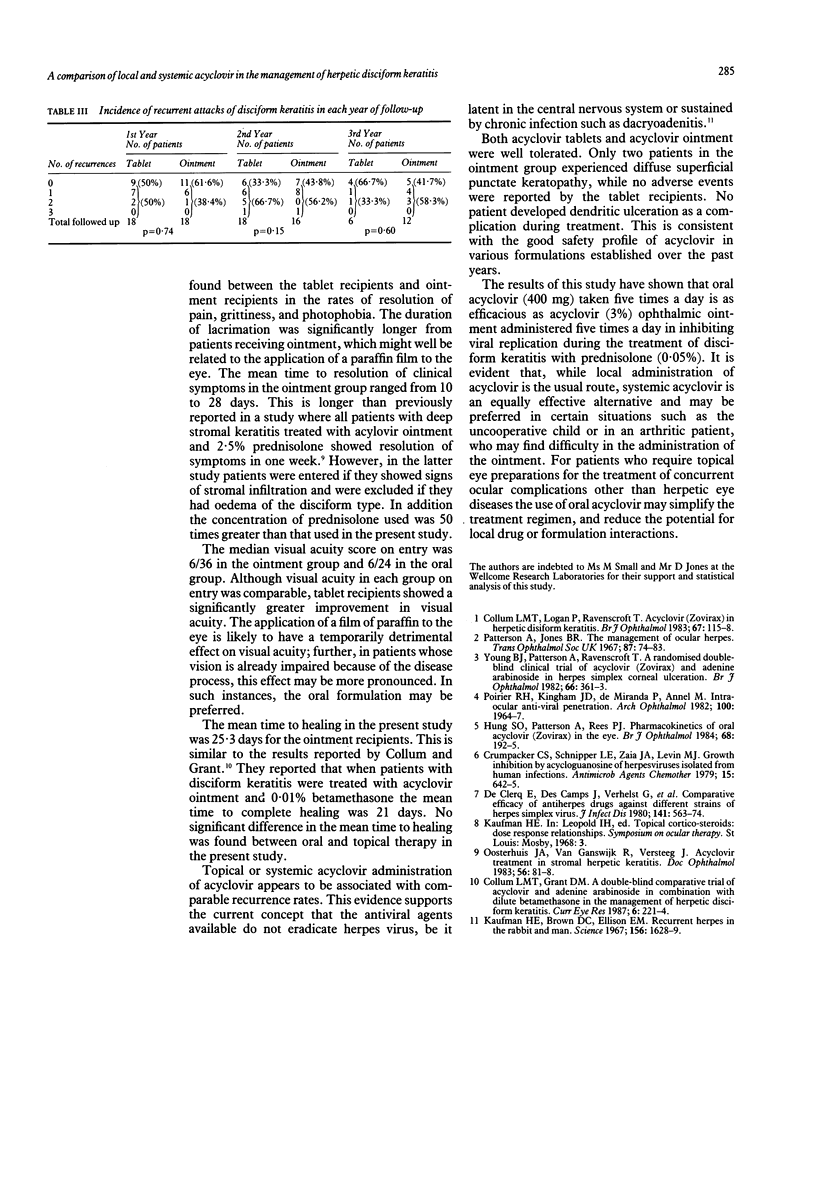Abstract
Forty-three patients with active herpetic disciform keratitis were entered into an open study to compare the efficacy of oral acyclovir (400 mg) with acyclovir ophthalmic ointment (3%) to inhibit viral replication during treatment with 0.05% prednisolone eye drops. All patients, regardless of the mode of therapy, were treated five times a day until they were healed. The mean time to heal in the oral group was 25.9 days and in the topical group was 25.3 days. Resolution of lacrimation was significantly faster in the oral group (12.1 days versus 27.6 days). The patients on tablets also showed a greater improvement in visual acuity. No statistically significant differences were found between the two groups in the incidence of recurrences over a three-year post-treatment period. It is concluded that oral acyclovir treatment is an effective alternative to ophthalmic ointment in the management of herpetic disciform keratitis.
Full text
PDF


Selected References
These references are in PubMed. This may not be the complete list of references from this article.
- Collum L. M., Grant D. M. A double-blind comparative trial of acyclovir and adenine arabinoside in combination with dilute betamethasone in the management of herpetic disciform keratitis. Curr Eye Res. 1987 Jan;6(1):221–224. doi: 10.3109/02713688709020094. [DOI] [PubMed] [Google Scholar]
- Collum L. M., Logan P., Ravenscroft T. Acyclovir (Zovirax) in herpetic disciform keratitis. Br J Ophthalmol. 1983 Feb;67(2):115–118. doi: 10.1136/bjo.67.2.115. [DOI] [PMC free article] [PubMed] [Google Scholar]
- Crumpacker C. S., Schnipper L. E., Zaia J. A., Levin M. J. Growth inhibition by acycloguanosine of herpesviruses isolated from human infections. Antimicrob Agents Chemother. 1979 May;15(5):642–645. doi: 10.1128/aac.15.5.642. [DOI] [PMC free article] [PubMed] [Google Scholar]
- De Clercq E., Descamps J., Verhelst G., Walker R. T., Jones A. S., Torrence P. F., Shugar D. Comparative efficacy of antiherpes drugs against different strains of herpes simplex virus. J Infect Dis. 1980 May;141(5):563–574. doi: 10.1093/infdis/141.5.563. [DOI] [PubMed] [Google Scholar]
- Hung S. O., Patterson A., Rees P. J. Pharmacokinetics of oral acyclovir (Zovirax) in the eye. Br J Ophthalmol. 1984 Mar;68(3):192–195. doi: 10.1136/bjo.68.3.192. [DOI] [PMC free article] [PubMed] [Google Scholar]
- Oosterhuis J. A., van Ganswijk R., Versteeg J. Acyclovir treatment in stromal herpetic keratitis. Doc Ophthalmol. 1983 Dec 15;56(1-2):81–88. doi: 10.1007/BF00154713. [DOI] [PubMed] [Google Scholar]
- Poirier R. H., Kingham J. D., de Miranda P., Annel M. Intraocular antiviral penetration. Arch Ophthalmol. 1982 Dec;100(12):1964–1967. doi: 10.1001/archopht.1982.01030040944016. [DOI] [PubMed] [Google Scholar]
- Young B. J., Patterson A., Ravenscroft T. A randomised double-blind clinical trial of acyclovir (Zovirax) and adenine arabinoside in herpes simplex corneal ulceration. Br J Ophthalmol. 1982 Jun;66(6):361–363. doi: 10.1136/bjo.66.6.361. [DOI] [PMC free article] [PubMed] [Google Scholar]


